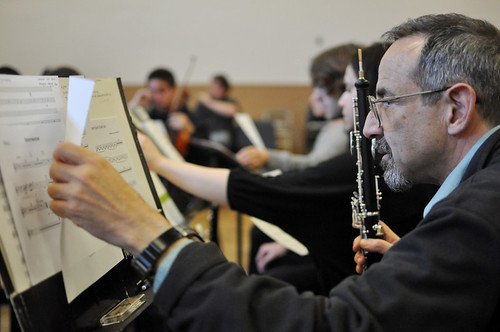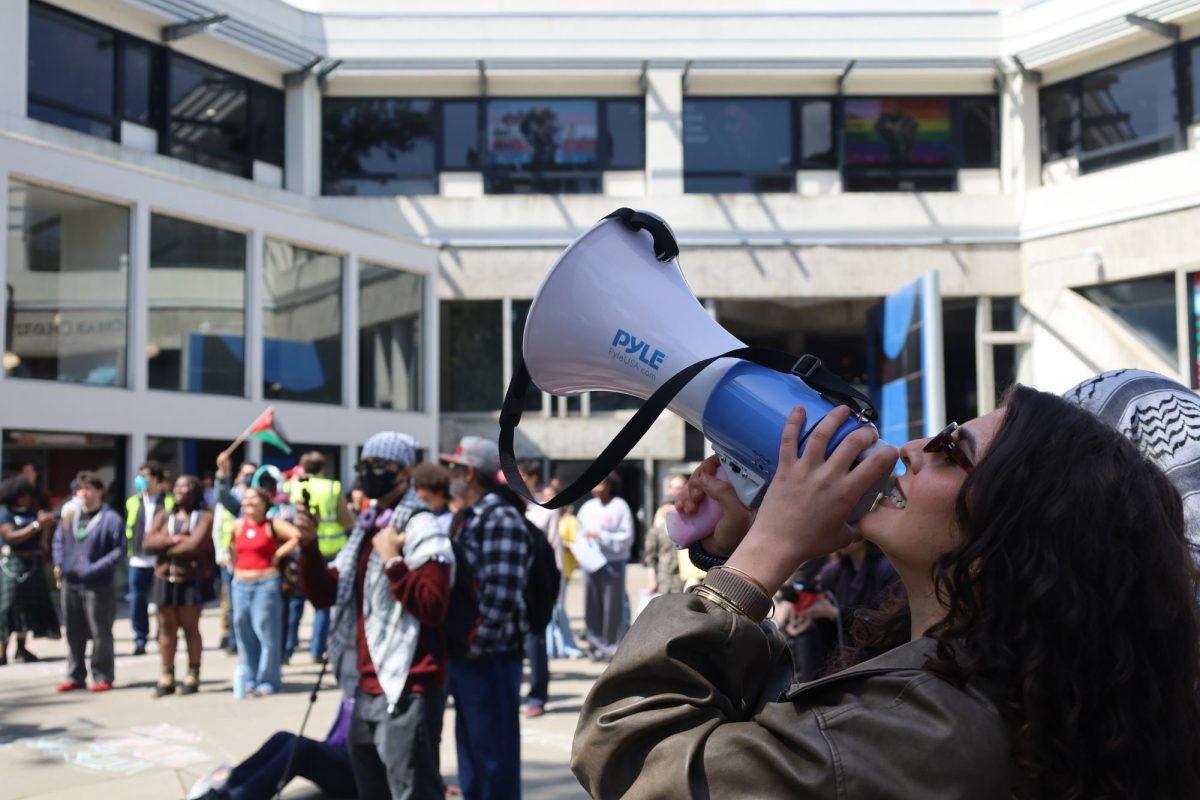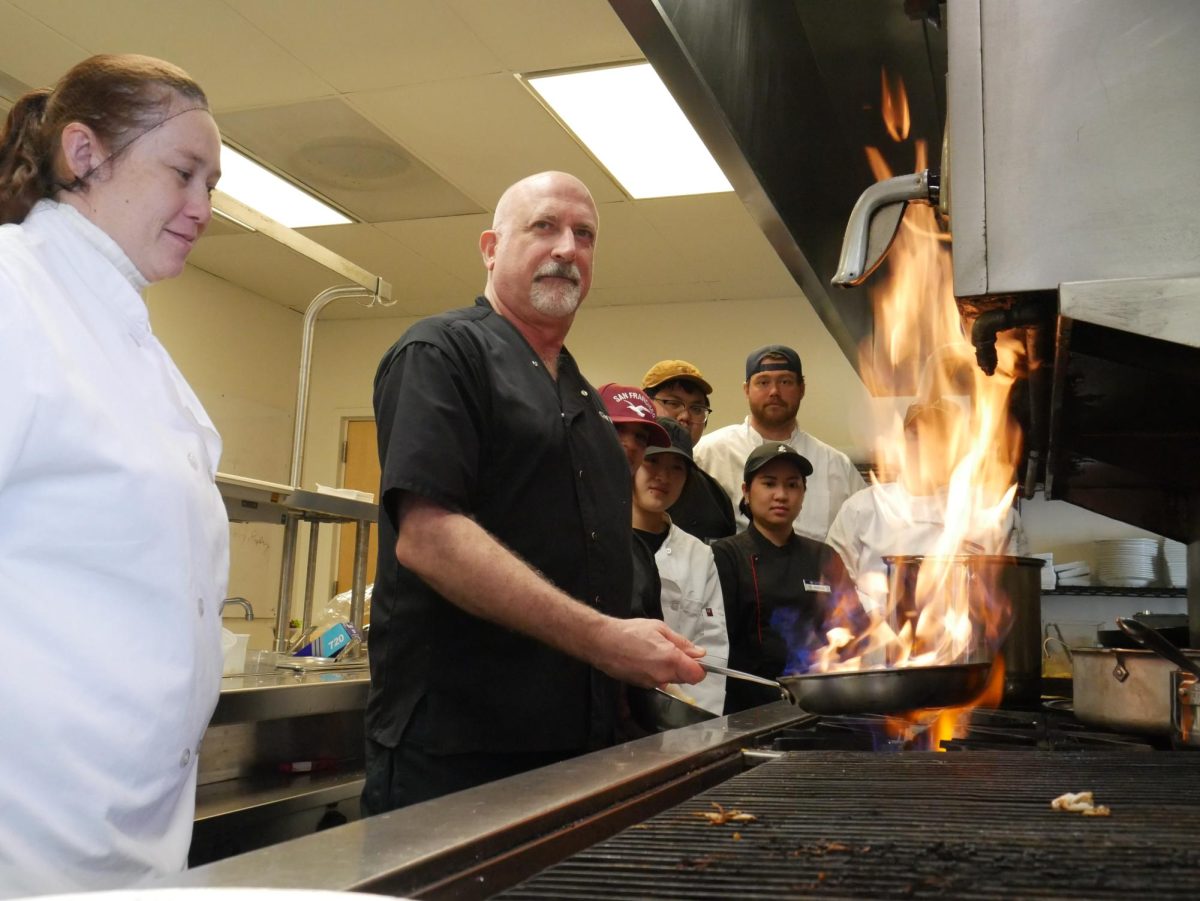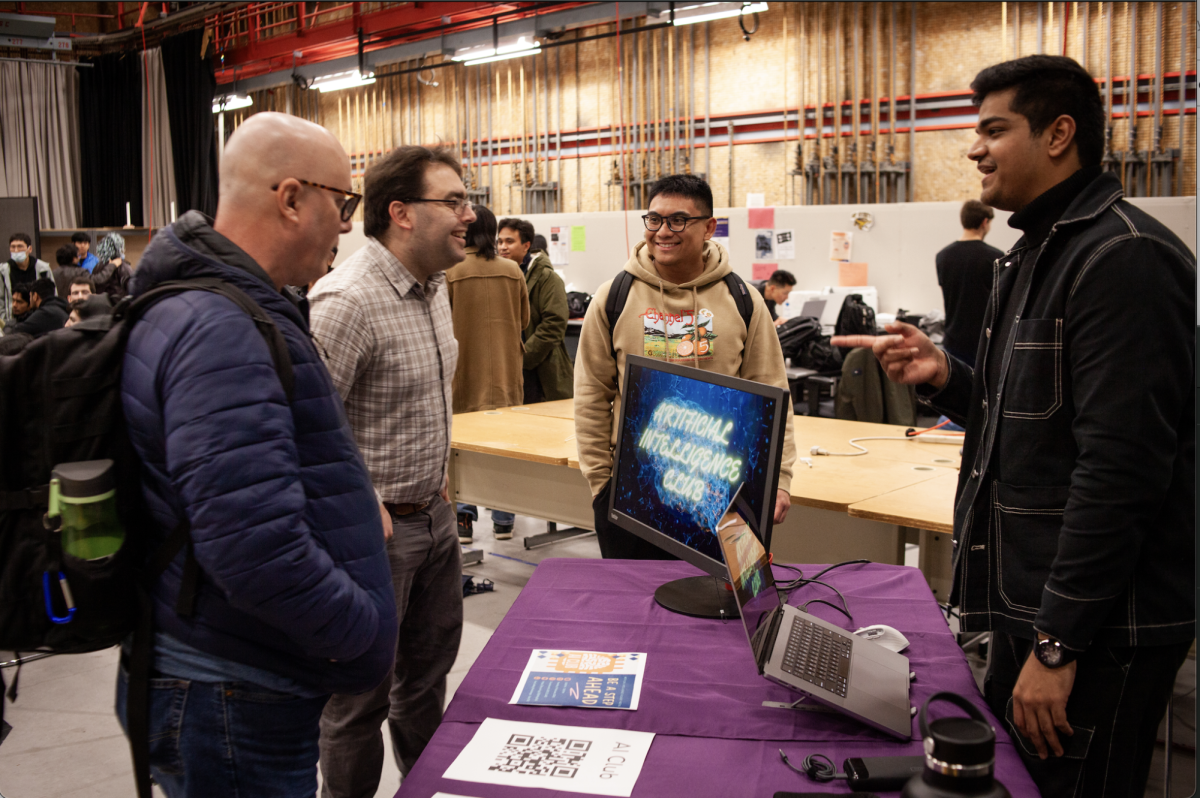
Keith Sklower sticks out from the rest of the musicians in the SF State orchestra. He’s been playing oboe longer than most of them have been alive.
Sklower plays with hunched shoulders and his prescription eyeglasses cover most of his face.
“Being old enough to be most people’s parent, I don’t get invited to many wild parties,” the 58-year-old says.
When he enrolled at SF State in the fall of 2009, Sklower hadn’t been a student for more than 33 years.
The part-time music major returned to school for his second bachelor’s degree to improve his musicianship.
“I want to the best musician I can be,” Sklower said. “It’s an innate part of who I am.”
His decision to go back to school came after he realized that private lessons could only take him so far. When he plays with other musicians, he can hear the difference between his skill level and the musicians with degrees.
He noticed that players with degrees make fewer mistakes when reading music, have longer stamina and are more confident in their playing.
“My goal is to play chamber music with professional musicians and not feel like I’m holding them back,” he said.
Sklower is one of 73 at SF State students studying for a second bachelor’s degree, associate vice president of enrollment management, Jo Volkert said
Because of enrollment restrictions, it’s rare for SF State to admit applicants going for their second B.A. Before the system-wide ban was imposed four years ago, SF State housed about 800 second-time undergrads a year, Volkert said.
But Sklower was admitted because the music program needed an oboe player. The chair at the time, Jassen Todorov, had to make a special request to the enrollment office to allow Sklower into the program, Sklower said.
Sklower earned his first bachelor’s degree in 1972, when he graduated from a small private college in Portland, Or., where tuition was $2,000 a year.
“Most of the time I don’t notice the age difference,” he said. “But sometimes I get my nose rubbed in it.”
After his first concert as a student, Sklower was confronted with the age gap when he was talking to an audience member after the show and learned that she was the concertmaster’s mother.
“He’s a homie,” said Grayson Converse, a sophomore music major who had a class with Sklower. “He was one of the ones who talked the most (in class).”
Since the 70s, Sklower has been working full-time as a programmer in the computer science department at UC Berkeley, installing software and helping professors with their research.
“When I do science it’s very literal-minded,” he said. “When you practice music you have to play precisely, but also there’s a little bit of poetry involved.”
Sklower’s love for music started at the age of 11 when he got his first lesson from his babysitter. She was playing piano in his home in New Mexico when Skylower asked her to explain the symbols she was reading.
“My mother was completely flabbergasted when she saw me picking out notes on the piano,” he said.
Soon after that, Sklower switched to the oboe because he heard it was a more challenging instrument than most.
“I’m still having to work hard to improve 43 years later,” he said.
Besides playing in the school orchestra, Sklower also plays in many community orchestras throughout the Bay Area, like the Golden Gate Park Band.
“It’s an emotional release,” he said about playing music. “It’s something I have to do for myself.”







